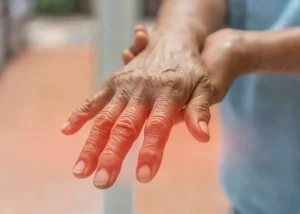
In addition, people with alcohol intolerance have a higher risk of certain cancers like throat cancer and Alzheimer’s disease if they drink. To keep your risk as low as possible, avoid alcohol entirely. If you don’t know if you have alcohol intolerance or alcohol allergy, see your doctor or an allergist. The only way to prevent an allergic reaction is to avoid the substance that causes it. Seeing an allergist can help you figure out what you’re allergic to.
What Is an Alcohol Allergy?

An increased heart rate is also a sign of alcohol intolerance. However, this symptom will likely be less severe and free from the same concerning shortness of breath. Those with a genuine alcohol allergy should completely avoid alcohol. Paying attention to which beverages cause symptoms can help people manage their alcohol intolerance. Allergies or not, always make sure you are drinking water as it has the ability to help regulate histamine levels and keep dehydration at bay, which can make symptoms worse. There are several ways to diagnose an alcohol allergy or intolerance.
What Can Cause an Alcohol Intolerance?
IgE is an antibody that suggests that a person may have allergies. Genuine alcohol allergies, in which people only react to the alcohol, are much less frequent. “Alcohol can also cause your blood pressure to go up and down by constricting and dilating blood vessels, which can worsen allergic reactions,” Parikh says. A skin test is the standard diagnostic tool for finding out if someone has allergies. A provider puts tiny amounts of potential allergens on your skin during a skin test.

Serious side effects of Amitiza
Additionally, moderation and paying attention to personal tolerance levels can also be beneficial in managing histamine-related symptoms. Congeners, responsible for the body, aroma and flavour of a drink, play a subtle yet significant role in the orchestration of reactions. To answer this, we delve into the substances within alcoholic beverages that might induce bodily responses. An alcohol allergy means you’re allergic to an ingredient in the drink. For example, you may be allergic to red grapes in red wine, preservatives like sulfites, or to gluten in some beers. Your immune system is reacting to an ingredient in the drink.
- So, it’s best to talk with your doctor so they can help determine if you should take an antidiarrheal.
- It also offers tips on how to drink alcohol safely if you have an allergy or intolerance to any ingredient used to make wine, beer, or distilled spirits.
- When we consume alcohol, our liver converts the ethanol present in it into acetaldehyde, a substance that can cause cell damage.
- Allergies to brewer’s yeast and other yeasts have been well-documented in the medical literature.
Alcohol Intolerance vs. Allergy

The amounts of histamine vary between wines, but generally, there is more histamine in red than white wine. Symptoms may occur within seconds or minutes of alcohol exposure and could trigger after exposure to even tiny amounts of the allergen. Some people what happens when you are allergic to alcohol may find relief with diamine oxidase (DAO) supplements, which may assist your body in breaking down histamines. Taking Amitiza may increase your risk of low blood pressure. To learn more about how these drugs compare, talk with your doctor or pharmacist.

What are the symptoms of a beer allergy?
In some cases, over-the-counter or prescribed medications might help alleviate symptoms. If you develop symptoms after drinking alcohol, make an appointment with your doctor. Depending on your symptoms, they might refer you to an allergist for testing and treatment.
- If you wheeze, cough, or experience tightness in the chest, then alcohol can be blamed for it.
- There have been reports of this side effect after the drug was approved in people taking Amitiza, but it’s unclear how often this has happened or if Amitiza was the cause.
- Some signs of anaphylaxis include swelling, itching, tightening of the throat and mouth, a weak or rapid pulse, fainting, shock, and loss of consciousness.
- If you develop any signs of a severe reaction, you should receive one or more doses of epinephrine.
Some people have a variant in the gene that codes for ALDH2. But it’s important to note that low blood pressure wasn’t seen during clinical trials of Amitiza. There have been reports of this side effect after the drug was approved in people taking Amitiza, but it’s unclear how often this has happened or if Amitiza was the cause. Before taking any diarrhea medication, talk with your doctor or pharmacist. So, it’s best to talk with your doctor so they can help determine if you should take an antidiarrheal. If you experience diarrhea while taking Amitiza, it’s important that you stay hydrated.
Grape Allergies
How to tell if you have an alcohol allergy
